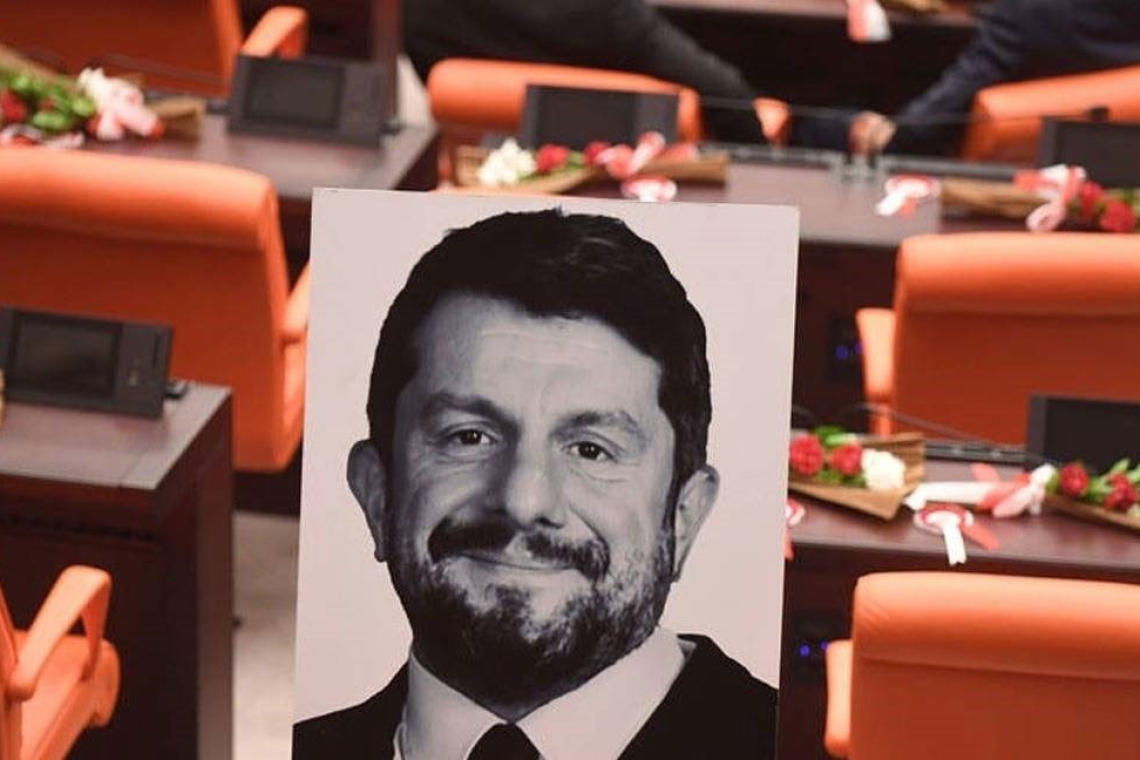The first anniversary of Can Atalay's election as a member of parliament for Hatay is today, marking a year filled with unprecedented legal chaos in Turkey's recent political history
By Sibel Yükler
Can Atalay’s journey from being sentenced to 18 years in prison for his involvement in the Gezi Park protests to being elected as a Hatay MP from the Workers' Party of Turkey (TİP) and subsequently embroiled in a legal quagmire represents a significant chapter in Turkey's judicial and political landscape.
Despite being elected a year ago, Atalay has never assumed his parliamentary duties. His release was initially sought from the Court of Cassation and later the Constitutional Court (AYM), but even AYM rulings mandating his release were ignored by the Court of Cassation, leading to a historic judicial crisis. Officially, his term lasted only eight months, culminating in a January 2024 parliamentary session where his mandate was annulled despite AYM’s decisions, and his office was reassigned to an MP from the İYİ Party.

Dispute between the Constitutional Court and Court of Cassation: A “vortex of lawlessness”
Parliament Speaker Numan Kurtulmuş, who had called for a resolution, saw the decision finalized shortly after a meeting between President Erdoğan and MHP leader Devlet Bahçeli. Former AYM President Zühtü Arslan, who concluded his term last month, described the scenario as a “vortex of lawlessness,” underscoring that AYM’s decisions are final and binding, a stance contradicted by the Court of Cassation’s disregard.
President Erdoğan has repeatedly criticized AYM's rulings regarding Atalay, deepening the crisis between judiciary branches. Arslan highlighted the lack of constitutional and legal grounds for ignoring AYM’s decisions, reflecting broader issues of judicial independence and political interference.
Atalay’s parliamentary status and the broader implications
The annulment of Atalay’s parliamentary status, despite AYM’s two rulings affirming his rights, symbolizes the overarching tension between judiciary bodies and political authority in Turkey. This case extends beyond individual grievances, influencing discussions on the new constitution and judicial appointments, reflecting systemic issues in Turkish law.
Milestones in the Atalay case
Atalay was sentenced in April 2022 along with other activists, and his sentence was upheld by the appellate court in December 2022. Elected in May 2023, his release petitions were denied by the Court of Cassation, leading to the AYM ruling a rights violation in October 2023. Despite AYM’s orders, Atalay remained imprisoned, as lower courts deferred to the Court of Cassation, culminating in the controversial parliamentary decision in January 2024.
Artificial intelligence and freedom of expression
On February 6, Atalay’s voice was heard for the first time in two years through an AI-rendered speech, marking the anniversary of the Hatay earthquake. This event highlighted the use of AI in circumventing restrictions on freedom of expression, a poignant commentary on the current state of civil liberties in Turkey.
Conclusion: The ongoing judicial impasse
As the case of Can Atalay enters its second year, it remains emblematic of Turkey’s legal and political struggles. The discord between AYM and the Court of Cassation, exemplified by the ongoing refusal to implement AYM’s rulings, continues to provoke debate and uncertainty within Turkey’s legal system. The future trajectory of this case will undoubtedly impact the broader discourse on judicial independence and the rule of law in Turkey.



